The success of populist movements in democratic nations is leading many on the political left to envisage a recalibrated political process to ensure that populist figures are never again able to rise to power, resulting in what political scientist Stephen Macedo called “civil totalism.”
Western liberalism, as a political project, has ordinarily been characterized by intrinsic freedoms. This includes the inherent rights of individuals and groups to order their lives around certain beliefs, to create their own institutions, to construct their own political apparatuses, with liberty in speech, conscience, religion, and association. In the liberal state, citizens are free to express opinions without fear of state reprisal, free to establish communities of like-minded people without state interference, and free to pursue their idea of happiness without state approval. In the liberal state, the state must bear and discharge the burden of proof whenever it seeks to restrict these intrinsic liberties.
The strength of the liberal state is participation and pluralism. The weakness of the liberal state is, ironically, participation and pluralism. The liberal state brings diverse and diametrically opposed ideologies into direct conflict with each other, leading to political tribalism, a politicized judiciary, legislative inertia, and a constant negotiation and compromise that leaves citizens either disenchanted or disaffected by the political system. The frustration is shared by political leaders that they can be, in the words of former Australian PM Tony Abbott, “A government in office, but not in power.” Consequently, people can experience democracy fatigue when the democratic processes generate legislative gridlock, are limited to a two party system, or lead to electoral outcomes that are disappointing.
The success of populist campaigns, from Brexit to Trump, can be seen as an anti-establishment protest by citizens at a system that is perceived to perpetuate a certain type of progressive elitism, where economic prosperity is not evenly distributed, and where government has failed to manage the ethnic diversification of the demographic. As a result, many centre-right and far-right candidates around the world have been elected as a “strong man” characterized by tough talk and autocratic tendencies, yet still largely operating within the aegis of democracy, and their nationalistic rhetoric tempered by libertarian commitments and respect for the rule of law. Unlike Venezuela, Trump has not imprisoned journalists or had political opponents eliminated, though repressive authoritarianism is admittedly a genuine feature of Turkey, Russia, China, and even Hungary.
However, some studies (see here, here and here) have shown many people beginning to lose faith in democracy precisely because of the election of right-wing populist figures. The political left, unable to imagine a UK without the EU, once fantasizing about having seen the last Republican president, and witnessing the rise of right-wing populists in the Philippines, Hungary, and Brazil, is now left wondering whether democracy itself is part of the problem. Perhaps we need an executive unencumbered by something as stifling as an opposition and as trifling as legislative process. A vision of a social media savvy, highly woke, technocratic Despot, who does not let anything as tedious as deliberation get in the way of policy success.
Harvard professor Yascha Mounk diagnoses one response to the populist problem in the USA: “If the American electorate can be duped by a figure like Trump, it can’t be trusted with whatever power it does retain. To avoid further damage to the rule of law and the rights of the most vulnerable Americans, traditional elites should appropriate even more power for themselves” and “Politicians, academics, and journalists favour a technocratic mode of governance because they think they know what’s best and don’t want the people to meddle.” Mounck himself knows that that view is precisely why Trump emerged in the first place: “The political class dislikes Trump because he threatens to take its power away. It also refuses to recognize that the people have a point.”
What is imagined by the prophets of this technocratic messiah is ordinarily something like an executive that is able to lead without obstruction and a state apparatus that is capable of implementing the progressive agenda without impediment. Such a project requires an executive equipped with a formidable bureaucracy empowered to direct individuals and institutions towards ends congruent with progressive government policies.
The more concerning aspects of this vision come when government runs roughshod over basic liberties in order to achieve its agenda. The result means a cabining of certain liberties – personal, political, religious, and economic – in order to realize the vision of the progressive state. In the end, the progressive social vision amounts to what American political scientist Stephen Macedo, in his book Diversity and Distrust, called civic totalism. This is a system where the plenipotentiary state is invested with all power and seeks to regulate as much of public and private life as possible in order to achieve its ends.
According to Macedo, the forerunner of modern visions of civic totalism was philosopher and educational theorist John Dewey. Dewey believed that the state should sanction a scientifically informed public morality which made comprehensive claims to truth and affected all spheres of life. Such a morality would be comprehensive in the sense of including the public and private realms, be rooted in the state education system, it required the subordination of the all institutions to the state, including that of religion. Civic totalism is empowered by a predacious bureaucracy where the state, Macedo contends, purses a deliberate convergence of private and public values, requiring government to be empowered with the ability to turn people’s deepest convictions – including their religious beliefs – in directions that are congruent with the ways of a progressive state. Civic totalism envisages a society unified around what Macedo labels “a progressive democratic religion.”
For a good example of civic totalism, look to Scotland. The Scottish government seems to have embraced precisely this civic totalist impulse of acting as big brother with first minister Nicola Sturgeon identifying herself as “chief corporate parent of Scotland” and “chief mammie.” And even the Guardian – yes, even the bolshie Guardian – has pointed out that the Scottish Government is trying to make Catholics out to be enemies of the state for their dissent to progressive policies. Sturgeon’s leadership is a cross between Nanny McPhee and Leon Trotsky.
I submit that left-leaning political elites with their identitarian politics, liberal immigration policies, and commitment to globalist economic systems manufactured the conditions in which populist leaders were elected. As a result, many of the left now distrust and dispute the democratic processes that have empowered their fellow citizens to elect populist figures. We see that in demands in the UK for a second Brexit referendum and in the USA with calls to impeach Trump for being, well, Trump. What some want is a political process that ensures a type postmodern technocracy run by educated cosmopolitan urban elites, somewhere between Chinese “democratic centralism” and Indonesian dictator Soeharto’s “guided democracy,” and administrated by a bureaucracy that exemplifies civic totalism.
The political left could have engaged in some hard self-critical reflection on why they lost to populist figures. They might have realized that maybe mainstream media outlets are not an accurate gauge of public sentiments and are merely an echo chamber for woke professionals in gentrified inner city suburbs. You don’t need a degree in political science to know that demonizing the white working class as “deplorables” would not inspire them to vote for you. That people will resist the idea that nuclear families are an oppressive patriarchal hetero-normative institution. That globalist economics benefits some more than others and it is these “others” who have been left behind. But no, instead we get a whole bunch of whinging about how democracy has failed, calls for socialism by people who have never lived in socialist countries, and a vision of a progressive state that is able to ensure that it never again loses to populist figures and is able to prosecute its agenda without the inconvenience of dissent, i.e. civic totalism.
When right-wing populist figures are democratically defeated – and they will inevitably be – we will not hear a call for a return to democracy and pluralism, rather, we are more likely to get demands to “fix” the democratic system to make sure that the people are never again able to rise up and outflank their cultural masters at the ballot box.
Rev Dr Michael F. Bird is an Anglican Priest and theologian. He tweets @mbird12 and blogs at Euangelion.
Illustration: Warner Brothers.
Got something to add? Join the discussion and comment below.
Got something to add? Join the discussion and comment below.
Get 10 issues for just $10
Subscribe to The Spectator Australia today for the next 10 magazine issues, plus full online access, for just $10.

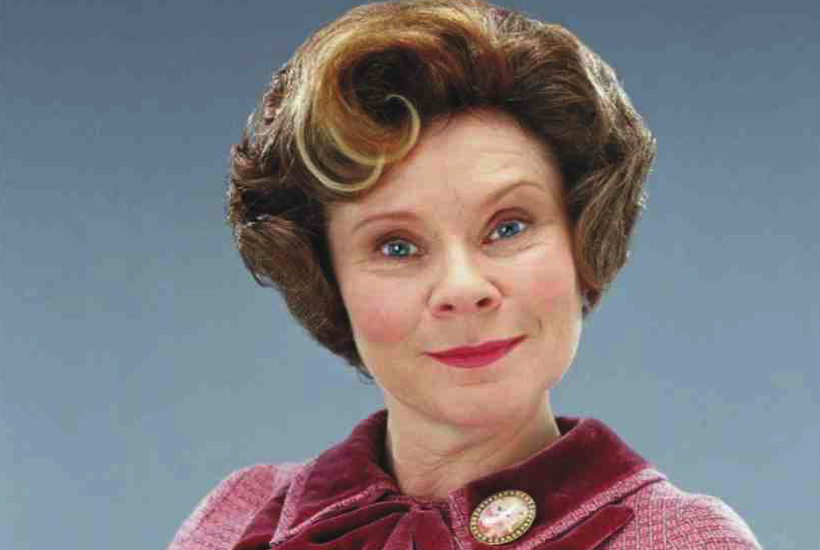













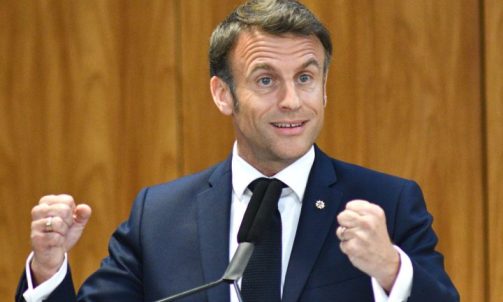
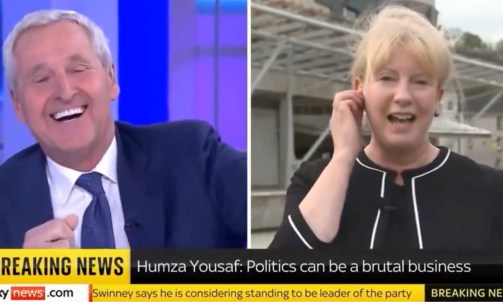
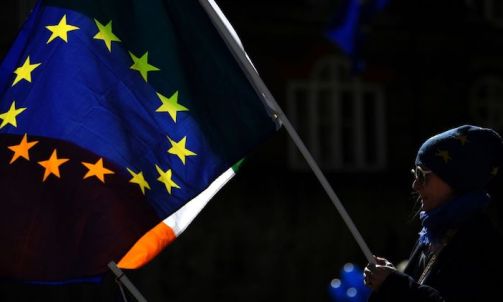

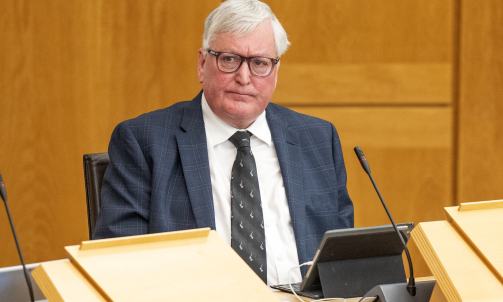






Comments
Don't miss out
Join the conversation with other Spectator Australia readers. Subscribe to leave a comment.
SUBSCRIBEAlready a subscriber? Log in